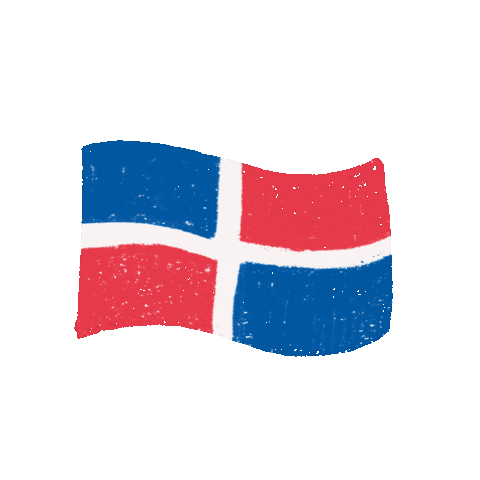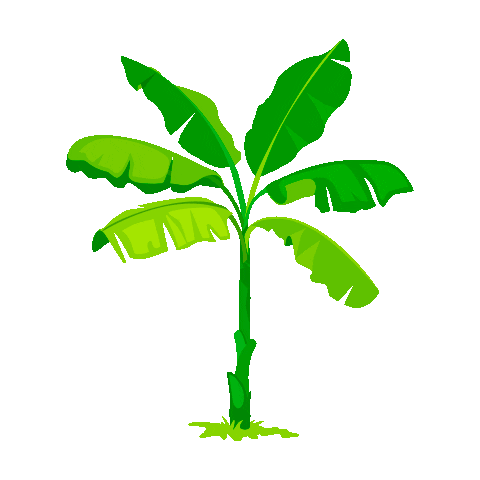When Parsley Produces Sugarcane
- Yamilka Moreno
- Jun 17, 2022
- 7 min read
Prior to learning about it from Afro-Latinx scholars, I never learned of the 1937 Parsley Massacre in any of my history classes, nor was it mentioned in any of the history books I read. Although sympathetic to the fact that it was destructive and disappointing, me being Dominican made me feel comfortable enough to consider it something of little significance to me, and initially I thought, to my family.
Like many historical events that I learn about, I fixated on the year of its occurrence and how my grandfather was not born too far from its date, which compelled me to ask my mother, who I doubted knew anything of the massacre. Like many of the topics that I tell her about, she was confused as to what I was talking about. This is a reaction I was accustomed to, as my mother has always been politically inactive, and wouldn’t have known that Obama was out of office in 2017 if I didn’t remind her that presidential terms did eventually come to an end. Even as a black woman, she did not know of notable Afro-Dominican historical figures from her country such as Mamá Tingó, a workers’ rights activist, or Yolanda Guzmán, who served as a combatant during the April Revolution, the war against the U.S. invasion of DR. Of course, she did not know her island’s legislative efforts to starve our sister island, Haiti, of its rights.
I recall how she was chopping sugarcane over the sink when I questioned her knowledge of the massacre, which was nothing of significance to me until now, since there is almost never a time where there is no sugarcane against the kitchen wall in my home.
As I described what took place, she did not look away from her chopping until I mentioned the word, “perejil,” or “parsley” in English. She knew exactly what the Parsley Massacre was. From her, I learned very quickly that labels were a thing of insignificance when you have experience. She didn’t know colorism had a name, but she experienced it. She didn’t know about the angry, black woman stereotype, but her experiences are proof that it is well and thriving.
Like the answers to most of my questions, they began with the life of my grandfather. He lost his mother young, and was extremely poor. With no other option or support, his fingertips were stained with the necessity to provide by selling carbon. Even while young, he was taunted because of his dark skin and associated with Haitians, which to racist Dominicans, is one of the worst curse words you could say.
Perejil. That word stuck with my mother, as it was a word that tormented her and her father equally. Whether it was sitting on his own porch or in front of his small clothing store, the same sentence followed him.
“Di perejil!” they joked.
“Say parsley!”
I figured that Dominican officials realized that they could not physically decipher Spanish-speaking black Caribbeans from Creole-speaking black Caribbeans just by their appearance, so they clung onto language.
They then realized that a large percentage of Haitians living in the Dominican Republic spoke Spanish fluently, so they needed to get more specific and clung onto accents.
It is widely assumed throughout the island that Haitian-creole speakers are not able to roll their r’s the same way Spanish-speakers can, and that’s how you’d know that they were not Dominican.
“Look out for the truck,” they’d say as they stood by his shop, “you better learn to say perejil.”
When Dominican police would find someone they suspected of being Haitian, they would throw them in the back of trucks and send them far to sugarcane fields as workers for cheap labor, working nearly all day. The jokes carried on to my mom, too.
At school, they would say that the truck was on its way for her and her father to take them to the fields together. Home was not an escape from these jokes either, as she recalls her sister, who has a lighter complexion than she does, taunting her too.
“You’re Haitian, and need to go back to Haiti.”
“The truck is coming for you!”
“When you leave from school, the truck is going to be waiting for you in the front.”
While in school, she would yell at her, “pitit gason,” Haitian creole for child.
It was not surprising when she told me that Haitian people could be “bought” for work by Dominican families, especially Haitian women. When sexual abuse happened to these women, they were invalidated. Beyond sexual abuse, they were marked with hot spoons or with the letters of the families that purchased them. Slavery has left its mark on Dominican people, and instead of attempting to deconstruct the harm that it has left on Hispaniola, they reinforce it, and show nothing but pride and respect for the statue of Christopher Columbus standing on the island today.
What I heard next reminded me of the order “40 acres and a mule” in U.S history. From 5AM to 7PM, my father’s side of the family, who I’ve criticized most since I started learning Dominican history, exploited Haitian workers themselves. The Haitians that my dad’s father would put to work were promised a roof over their heads, food, clothes, and pay. In reality, they received leftovers, and extremely low pay. After all of their tiresome work, my father’s mother, who was a black woman herself, would tell him to wash the dishes after everyone ate.
I refuse to excuse my mother’s family, who she also mentioned savored the benefits of working Haitian women in their own home. Prior to working for my mother’s family, she mentioned how one of the women that worked for them, Rosa, had scars on her body from being sexually abused by her stepfather. She hesitated to say where she got the scars at first, but my mother, while young, recalled her crying as she washed dishes. Prior to working for her family, she worked for wealthy white people who treated her poorly, and eventually managed to leave. Although my grandmother paid her well and treated her respectfully, I don’t believe it excuses the fact that Dominicans have exploited and benefitted from Haitian mistreatment, despite the fact that both their ancestors were taken advantage of by the same power.
In all of the stories that my mom tells me about her experiences with racism from other Dominicans, the reality that never seemed to stop surprising me was the lack of sympathy my mom’s mother showed, also a black woman. When my aunt would weaponize the word “Haitian” against my mother, she discarded it as childish sibling arguments. At home, my grandmother would even make coffee for a man named Juan.
“Where’s that little Haitian girl? The truck is waiting for her.”
“You must’ve found that little Haitian girl somewhere, she needs to be sent back.”
For him, these were just jokes. To my mom, they continue to sadden her till this day, so much so that she anticipated for the time that I’d be done with my daunting history questions so that she’d be able to get back to whatever task she was doing.
Before we were done talking, she left me with the name of a man that I still think about, even despite having no personal connection to him myself.
When my grandmother would get sent home news of my mother’s behavior when she defended herself from the racist name-calling she recieved, she was quick to place the blame on her for being a trouble maker. My mother’s history teacher, a Haitian man named Carlos would defend her, saying that she was only acting on the treatment that she received. Even when talking about him today, she describes him through smiling teeth. She said he would break his back for all of his students to get the equal opportunity to learn, especially her, who she says was never academically gifted.
“Carlos didn’t care where you came from. Dominican, Haitian, Brazilian. He wanted you to pass. He wanted you to understand history.”
She named a list of teachers she had, who shamed her for not knowing as much as her peers did. One of her teachers, who I mentioned in my schools newspaper about latinos and colorism, even sat her by herself because of the skin she was in.
I don’t detail this story in an attempt to say that Dominicans suffered equally with Haitians during the duration of the Parsley Massacre, as I understand that Dominicans were the oppressors and continue to be today. I do say it to emphasize that much of the attempts to discriminate against Haitians put Dominicans at a disadvantage as well, but we are too focused on excluding the other half of the island to realize. When Dominican officials are rounding up people who they think are Haitians, in reality, a lot of them are Dominicans whose skin questioned their citizenship. A lot of them are Dominicans of Haitian descent, or sometimes, the daughter, son or child of Dominican and Haitian parents. Other times, they are simply Dominicans of Dominican parents, who police think have skin dark enough to possibly be Haitian.
I wish I could talk about the mistreatment of Haitians in the past tense, but it is impossible as Dominican police continue to work hard to “cleanse” DR of Haitian immigrants, who a lot of times, are not immigrants at all. Today, you will still hear Dominicans say that Haitians are threatening the Dominican identity, but do not question how the current president of DR, Luis Abinader, is a man of Lebanese descent. But, because he is fair skinned, it does not matter, he’s not a threat. Today, you will still see Dominicans shake their head at the anti-Haitianismo propaganda they see on Dominican news outlets. Sadly, they do not shake their head because they disagree. Today, you will still hear Dominicans go on worn out tangents about how Haitians will soon take over DR. Today, you will still listen to Dominicans try to justify their racist ideals and behavior by saying that Haitians enslaved us, while simultaneously not knowing anything about their own history besides that one, false misconception, nor taking the time to learn. Ask a racist Dominican when their abolition day is, and you’ll get blank stares. Today, you will see Dominicans protest against the teaching of their true history because it contradicts the hate they have taught their children to perpetuate. Today, the president of DR will be begged for his plans of a better future and he will point to the errors of Haitians, meanwhile his streets are still wet from the blood of surging, violent crimes due to social inequality and the murder of his Environmental Minister not too long ago.
To love your country is not to turn your head at its embarrassing, discriminating, and hypocritical behavior. To call out its downfalls is not to hate it, its the love those who excuse its wrongs claim to possess. Do you not correct the people you love?
Correct your parents. Acknowledge your Dominican fragility and be better than those who instilled in you the hate that their parents did to them. Take up space with truth and make them uncomfortable with conversation, as it is for the better.







Comments